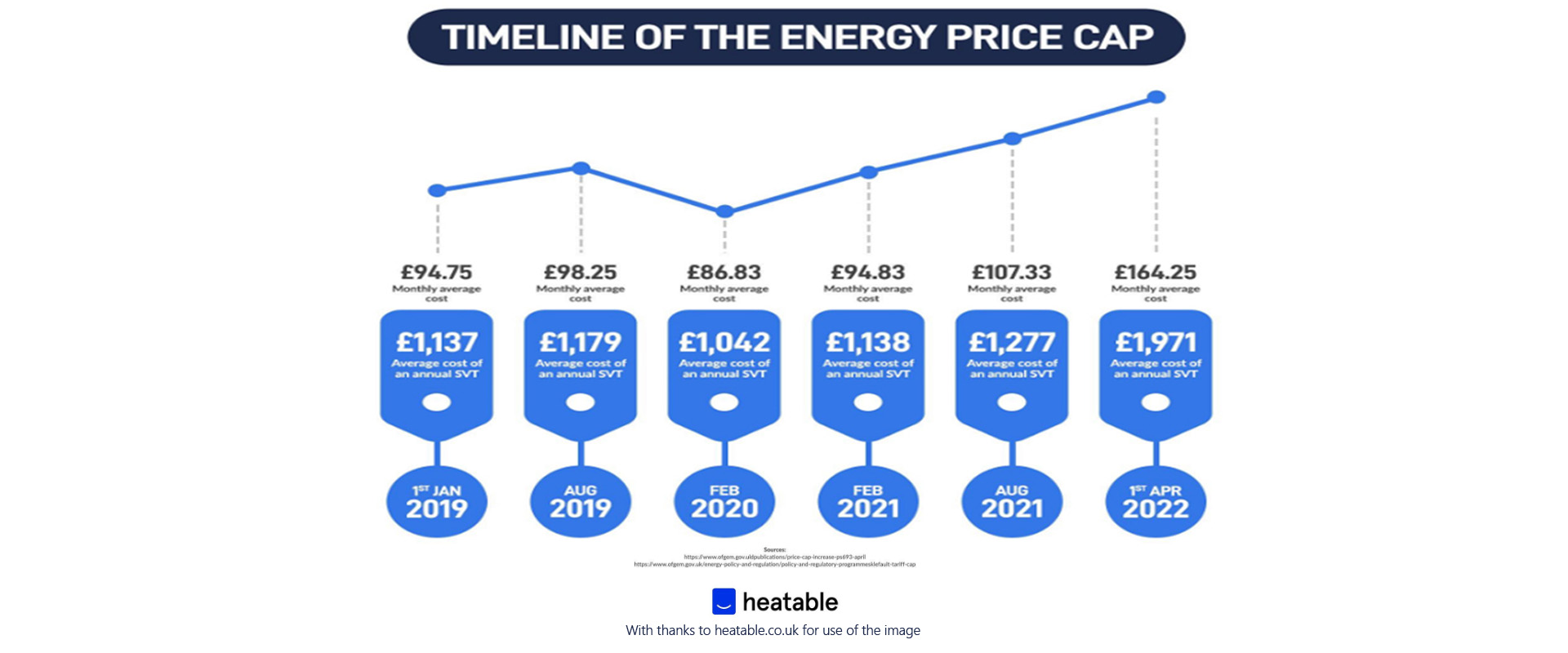There was a big sigh of relief in households when the government announced its ‘energy price guarantee’ on 8 September.
But after the prolonged threat of soaring price rises, is this price cap enough to stop energy consumers from seeking other forms of heating and hot water supply that offer more stable prices and are better for the environment?
While the government’s intervention with financial support in energy costs is welcomed by consumers, this is only one area of economic hardship they face with rising interest rates and mortgage costs, inflation and price increases, a cost-of-living crisis, a likely recession and at worst stagnation.
All this after the stress and hardship of the Covid-19 pandemic.
The new Prime Minister’s in-tray is overflowing.
Heat pumps are an effective and proven low-carbon solution
An average price cap
The national cheer that the price cap would be £2,500 for two years for a ‘typical household’, was only because it was a reduction of the £3,549 per year that had earlier been announced by Ofgem. Relief.
But when set against the price cap that energy users had previously, £1,971 per year, the Prime Minister’s newly stated figure is still a £529 increase.
Helpfully, the government also announced that the £400 payment for all households in the UK will continue for the first year. In addition to this there are council tax rebate schemes available in England, Scotland and Wales.
Use more, pay more
Price conscious households will be looking to see how they can reduce their costs. Even though there is a price cap, the more energy you use, the more you will pay.
There is an incentive to cut usage. Some will look to heat fewer rooms in their home and to wear extra clothing. Those who can afford to invest in their homes will look to increase insulation and install triple glazing to cut heat wastage.
Looking beyond the two-year freeze of the energy price guarantee, there is no assurance that gas and electricity prices won’t rise again.
The oil and gas market is known to be cyclical and volatile to global events.
While the price of electricity is pegged to the cost of gas, and dependent upon its demand and supply, or open to weaponisation as is the case with war in Ukraine, it will remain at risk of continued price hikes which is not the making of its suppliers.

Price cap
Thanks to www.heatable.co.uk
Cheaper is not always lower cost
To get out of the price strangle-hold of oil and gas suppliers as in the current fossil fuel crisis, energy consumers are pursuing and looking at alternative means to get their heat and hot water.
Many will be comparing the financial and carbon costs of switching away from oil and gas boilers to options such as heat pumps or electric storage heaters.
The latter may be cheaper to run than standard electric heaters as they work on cheap night-time tariffs and release energy during the day and, if located off the gas-grid, can be an option.
However, they can be more expensive than gas central heating to run.
And if the stored heat has been released during the day, managing room temperature at night can be an issue. This may lead to inefficiency, increased bills and a higher carbon footprint.
A constant supply of energy
Heat pumps are an effective and proven low-carbon solution.
Obtaining heat from the air or the ground, rather than from oil and gas, limits CO2 emissions and is an important means of decarbonisation on the road to net zero.
Importantly, and in the search for energy security, heat from the air or the ground is constant and not open to the volatility of global political events.
For homeowners, heat pumps provide a reliable form of heating that is renewable, controllable and reduces energy bills – for every one unit of electricity a heat pump offers three units of heat making them very competitive in the cost of heating a home.
Household support
To support households on their journey to decarbonisation and to a secure route to energy, several schemes are available to limit the cost of installing a heat pump.
The government is committed to reaching net zero in 2050 and Liz Truss, the new Prime Minister, has announced “a review to ensure we deliver net zero by 2050 in a way that is pro-business and pro-growth”.
Under the Boiler Upgrade Scheme, the government is offering households rebates of £5,000 to £6,000 to replace their gas boilers with heat pumps. Households also benefit from reduced costs as there is no VAT on the installation of heat pumps.
Locally, there may also be other schemes available to support households to better insulate their homes or to install heat pumps.
In London, for example, the Mayor of London’s Warmer Homes Programme offers grants of between £5,000 and £25,000 for low-income homeowners and private tenants. A similar scheme is available from Home Energy Scotland.
For those on low incomes it is also worth looking at what support is available from your local council or energy supplier to meet your energy costs.
Now is the time
The immediate crisis of rising household energy bills may have been overcome with the energy price guarantee, but the cost of gas and oil continues to rise – it’s just that the government has chosen to underwrite this by adding to the national debt.
Consumers are now conscious, if they weren’t previously, of the unpredictability of fossil fuels and their prices and should look to be less dependent upon them.
While schemes are available, such as the Boiler Upgrade Scheme and zero VAT for heat pumps, now would be good opportunity to look for alternatives to gas and oil boilers which would also be good for the environment.
Achilleas Georgiou is Communications Manager for Residential Heating



